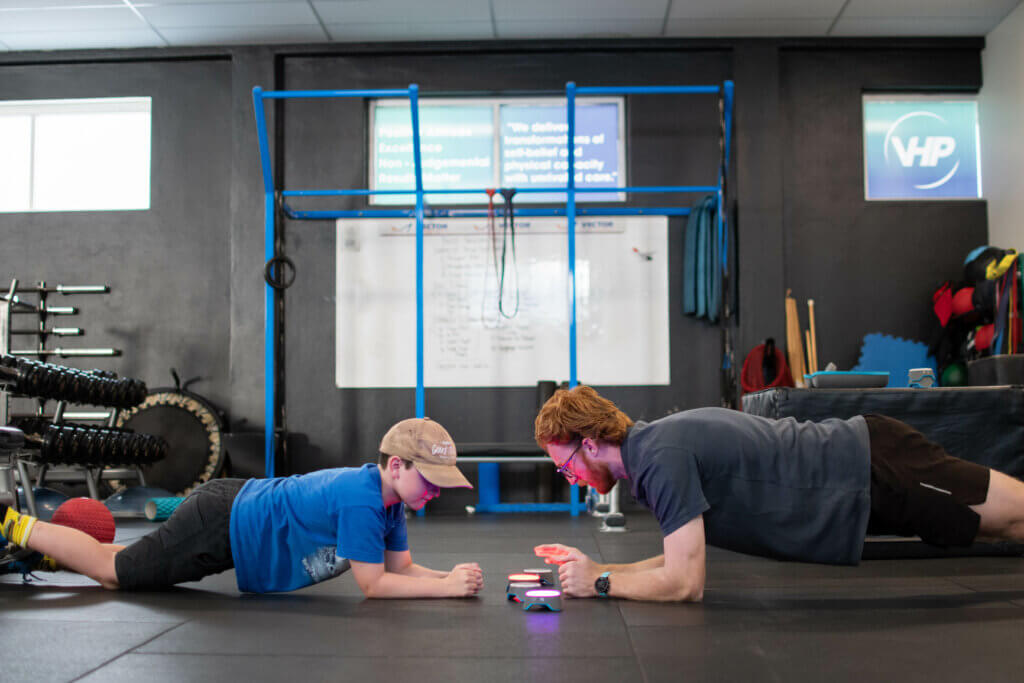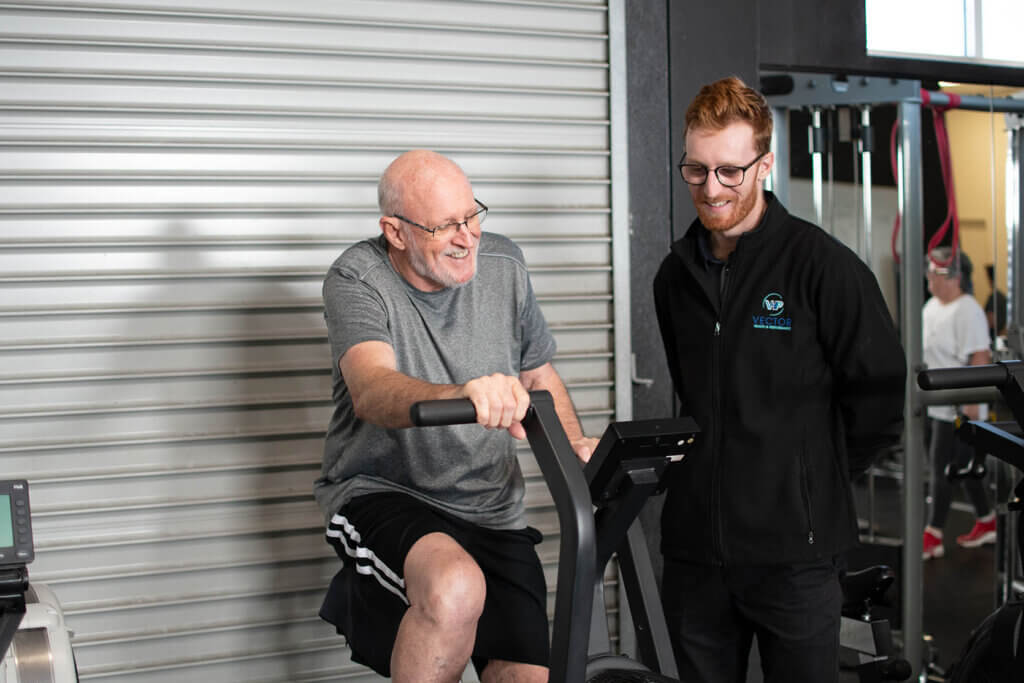The Growing Demand for Exercise Physiologists in Weight Loss Programs
In today’s health-conscious world, there is a growing demand for exercise physiologists to design effective weight loss exercise programs tailored to individual needs, health goals, and mobility. This demand is particularly crucial for those facing health challenges such as cardiovascular and lung diseases, kidney illness, diabetes, arthritis, osteoporosis, and cancers. Vector Health’s exercise physiologists are equipped to provide personalized weight loss programs that address these unique challenges, ensuring safe and effective outcomes. Here’s how they can help:

Why Exercise Physiologists Are Essential
Expertise in Health Conditions:
Exercise physiologists have specialized knowledge of how different health conditions affect the body. They design exercise programs that consider these conditions, ensuring safety and effectiveness.
Individualized Programs:
Unlike generic fitness plans, exercise physiologists create personalized programs that take into account an individual’s medical history, current health status, and fitness levels.
Focus on Functional Mobility:
They emphasize improving functional mobility, making daily activities easier and enhancing the quality of life.
Holistic Approach:
Exercise physiologists adopt a holistic approach, incorporating exercise, nutrition, and lifestyle changes to achieve sustainable weight loss and improved health.

Health Challenges Addressed by Exercise Physiologists
Cardiovascular and Lung Diseases:
Tailored exercise programs can improve heart and lung function, reduce blood pressure, and enhance overall cardiovascular health.
Kidney Illness:
Regular exercise can help manage weight, reduce stress, and improve kidney function, making it an essential component of kidney health management.
Diabetes:
Exercise helps regulate blood sugar levels, improve insulin sensitivity, and reduce the risk of complications associated with diabetes.
Arthritis:
Low-impact exercises designed by exercise physiologists can reduce joint pain, improve flexibility, and enhance mobility without exacerbating symptoms.
Osteoporosis:
Weight-bearing and resistance exercises help strengthen bones, reduce bone loss, and prevent fractures.
Cancers:
Exercise can improve physical function, reduce fatigue, and enhance the quality of life for cancer patients during and after treatment.
How Vector Health Exercise Physiologists Tailor Weight Loss Programs
Initial Assessment:
Step 1: Comprehensive Health Evaluation
Assess medical history, current health conditions, fitness levels, and any physical limitations.
Conduct baseline measurements such as weight, body composition, blood pressure, and fitness tests.
Goal Setting:
Step 2: Personalized Goal Setting
Discuss individual weight loss and health goals.
Set realistic, achievable short-term and long-term goals.
Program Design:
Step 3: Customized Exercise Plan
Design a tailored exercise program that includes aerobic exercises, strength training, flexibility exercises, and balance training.
Ensure the program is safe, effective, and enjoyable.
Nutritional Guidance:
Step 4: Nutritional Support
Provide guidance on healthy eating habits and nutritional choices that support weight loss and overall health.
Collaborate with dietitians or nutritionists for specialized dietary plans if needed.
Regular Monitoring and Adjustments:
Step 5: Ongoing Assessment and Adaptation
Monitor progress regularly through follow-up assessments and adjust the exercise program as needed.
Address any challenges or setbacks and modify the plan to ensure continuous progress.
Support and Motivation:
Step 6: Continuous Support and Motivation
Offer regular encouragement, motivation, and support to keep clients on track.
Provide education on the importance of consistency and perseverance.
Addressing Barriers:
Step 7: Overcoming Obstacles
Identify and address any barriers to exercise, such as time constraints, physical limitations, or lack of motivation.
Develop strategies to overcome these barriers and ensure adherence to the program.
Integration with Medical Care:
Step 8: Collaboration with Healthcare Providers
Work closely with doctors, physiotherapists, and other healthcare providers to ensure the exercise program aligns with medical treatments and recommendations.
Provide updates on progress and any concerns that may arise.
The role of exercise physiologists in designing effective weight loss programs is invaluable, especially for individuals facing various health challenges. Vector Health’s exercise physiologists provide a comprehensive, personalized approach to weight loss, ensuring that each program meets the unique needs of the individual. By focusing on safe, effective, and enjoyable exercise routines, they help clients achieve their weight loss goals, improve their health, and enhance their quality of life.
If you’re looking to lose weight and improve your health, consider partnering with an exercise physiologist at Vector Health. Their expertise and personalized approach can make a significant difference in your journey to better health. Contact us today to start your personalized weight loss program and take the first step towards a healthier, happier you.

